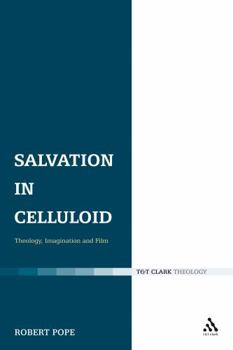Salvation in Celluloid: Theology, Imagination and Film
Much work in the field of theology and film lacks a really theological focus. This book suggests a methodology based on the recognition of the imagination as the fundamental category in producing and interpreting film. The argument is presented that the imagination holds theological significance when it is conceived of in certain ways. As a result, the book adopts the 'paradigmatic imagination' (an imagination which works within the paradigms...
Format:Hardcover
Language:English
ISBN:056703206X
ISBN13:9780567032065
Release Date:October 2007
Publisher:T&T Clark
Length:224 Pages
Weight:1.08 lbs.
Dimensions:0.6" x 6.1" x 9.2"
Customer Reviews
0 rating





